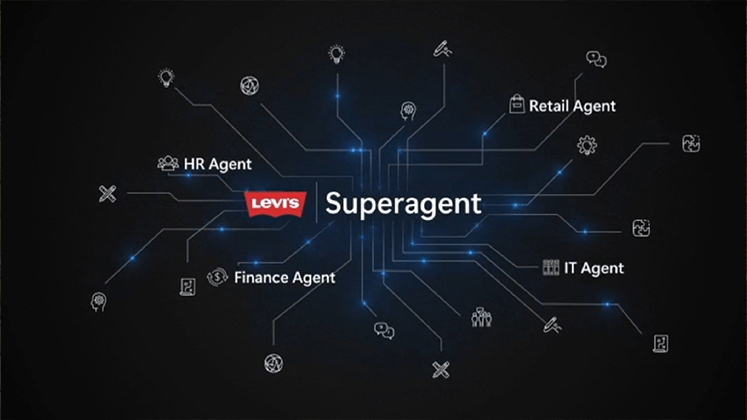
Levi Strauss & Co. has entered into a partnership with Microsoft to develop an enterprise AI “superagent” that will unify employee support, modernise retail operations and strengthen the company’s core data infrastructure.
According to both companies, the new Azure-native orchestrator will operate within Microsoft Teams and route requests across IT, HR, retail support and operational sub-agents. It will form a central component of Levi’s transition towards what the company described as a “fan-obsessed, direct-to-consumer first business”.
Levi said the system is designed to consolidate employee queries, system look-ups and routine operational tasks into a single conversational interface. By replacing reliance on legacy systems and outdated navigation pathways, the company expects store associates and corporate teams to receive faster and more consistent support. Several sub-agents are already active, with additional capabilities scheduled for the next development phase.
The initiative is part of a wider modernisation strategy that incorporates Surface Copilot+ PCs, GitHub Copilot and Microsoft Intune. Levi’s is also moving workloads from on-premises systems to Microsoft Azure and is employing Azure Migrate, Azure AI Foundry and Semantic Kernel to drive automation and maintain a zero-trust security model.
The partnership comes as more retailers adopt agentic AI systems across both internal and consumer-facing functions. Levi’s said its customer-facing tools will be underpinned by the same data foundations. The company noted that its new Outfitting feature uses integrations with inventory data, aggregated purchase history, browsing behaviour and product imagery to deliver personalised styling recommendations through its app.
Levi’s added that Stitch, its AI-powered associate assistant, provides store staff with instant access to product information, brand insights, how-to guides and training resources.
The move places Levi’s in closer alignment with competitors. Recent reports have highlighted that Amazon and Walmart are building AI superagents as core operating platforms rather than standalone tools. Levi’s adoption of a similar architecture signals that established apparel brands are also embracing advanced orchestration systems to speed up decision-making, strengthen execution and accelerate their direct-to-consumer growth strategies.
Levi said the AI superagent will begin a global rollout in early 2026. With Microsoft providing the cloud, AI and security framework, the company expects the shift to improve productivity, enhance internal support and create tighter coordination across stores, supply chain operations and digital channels.






